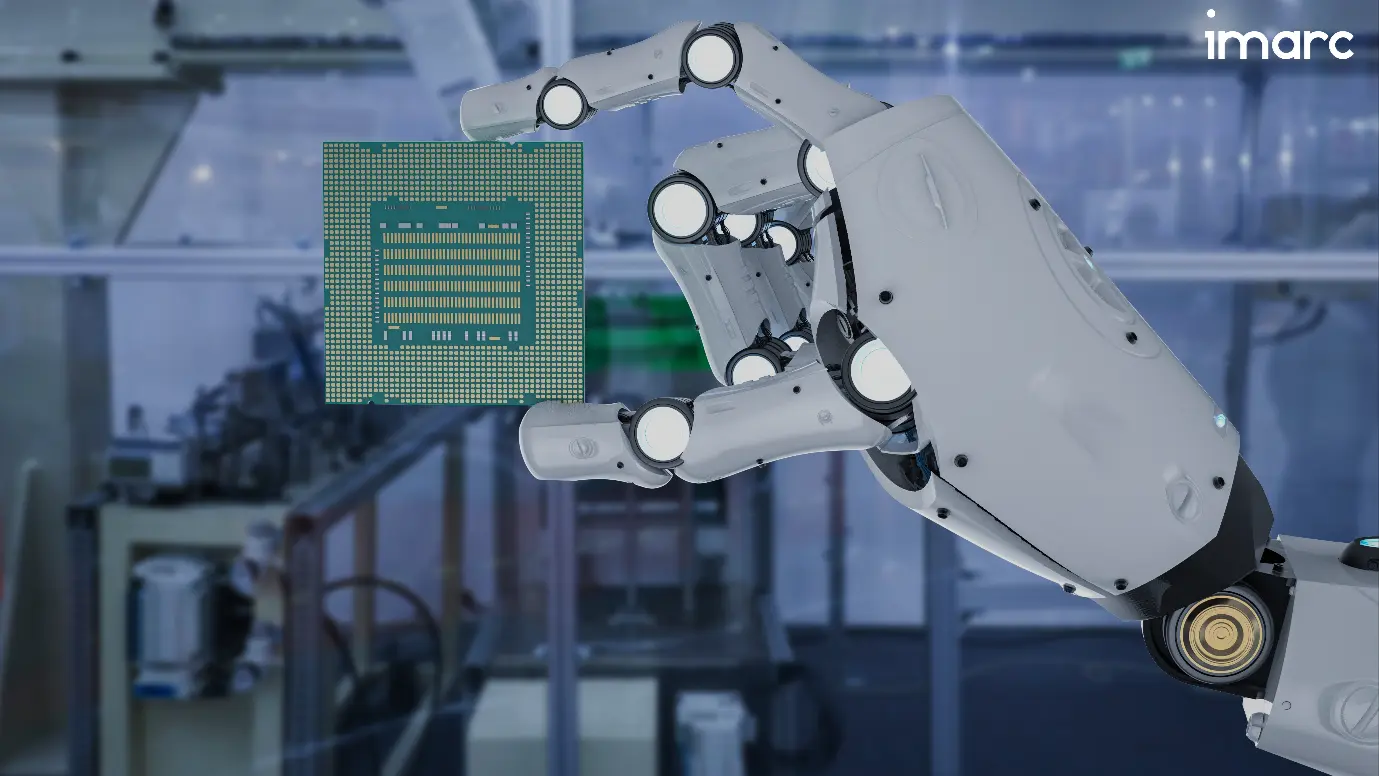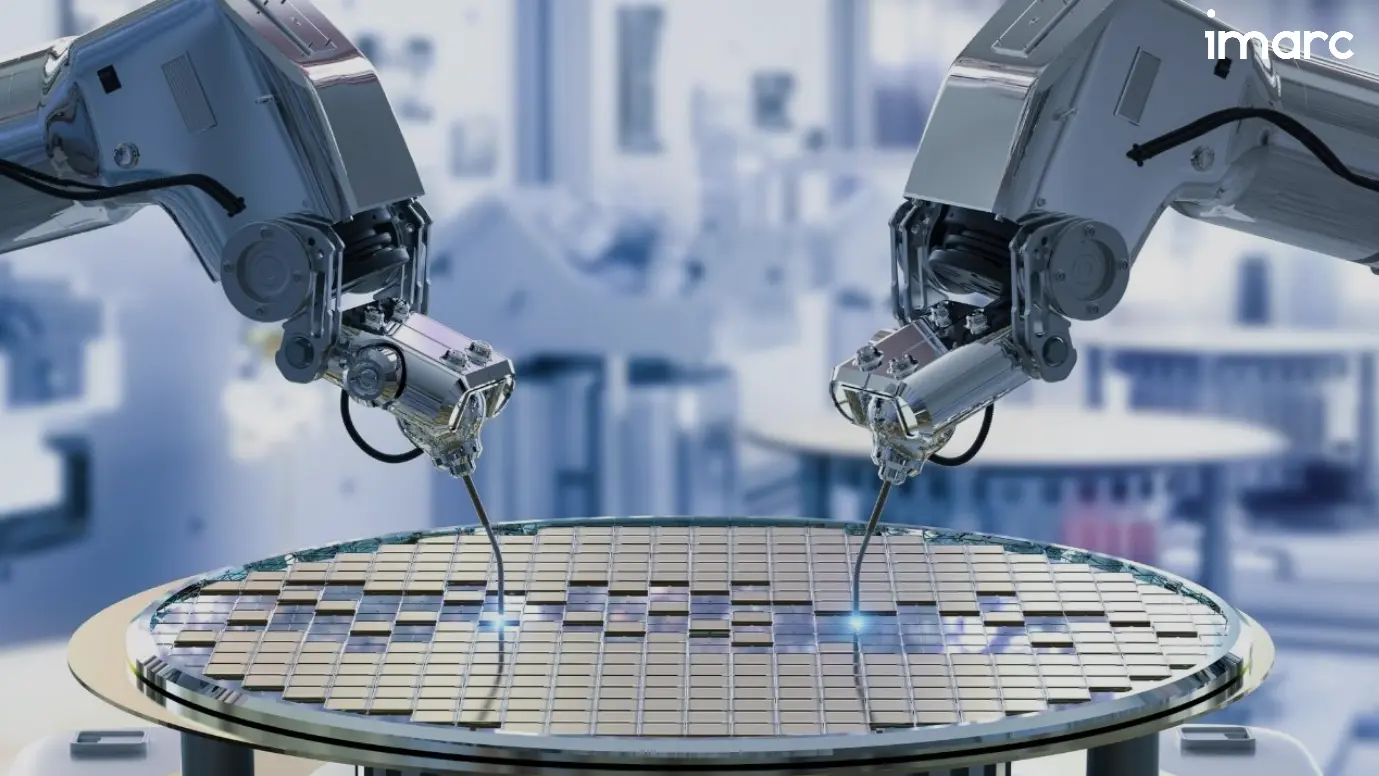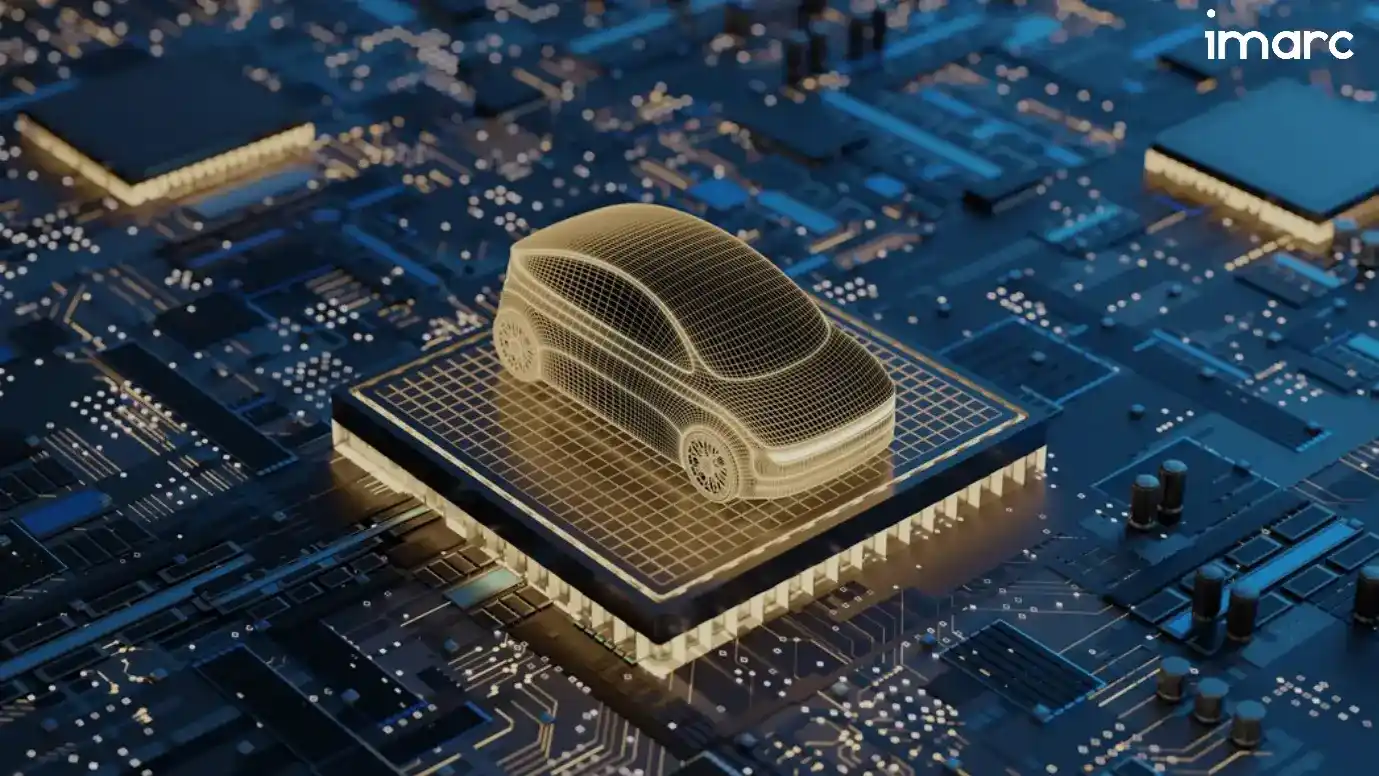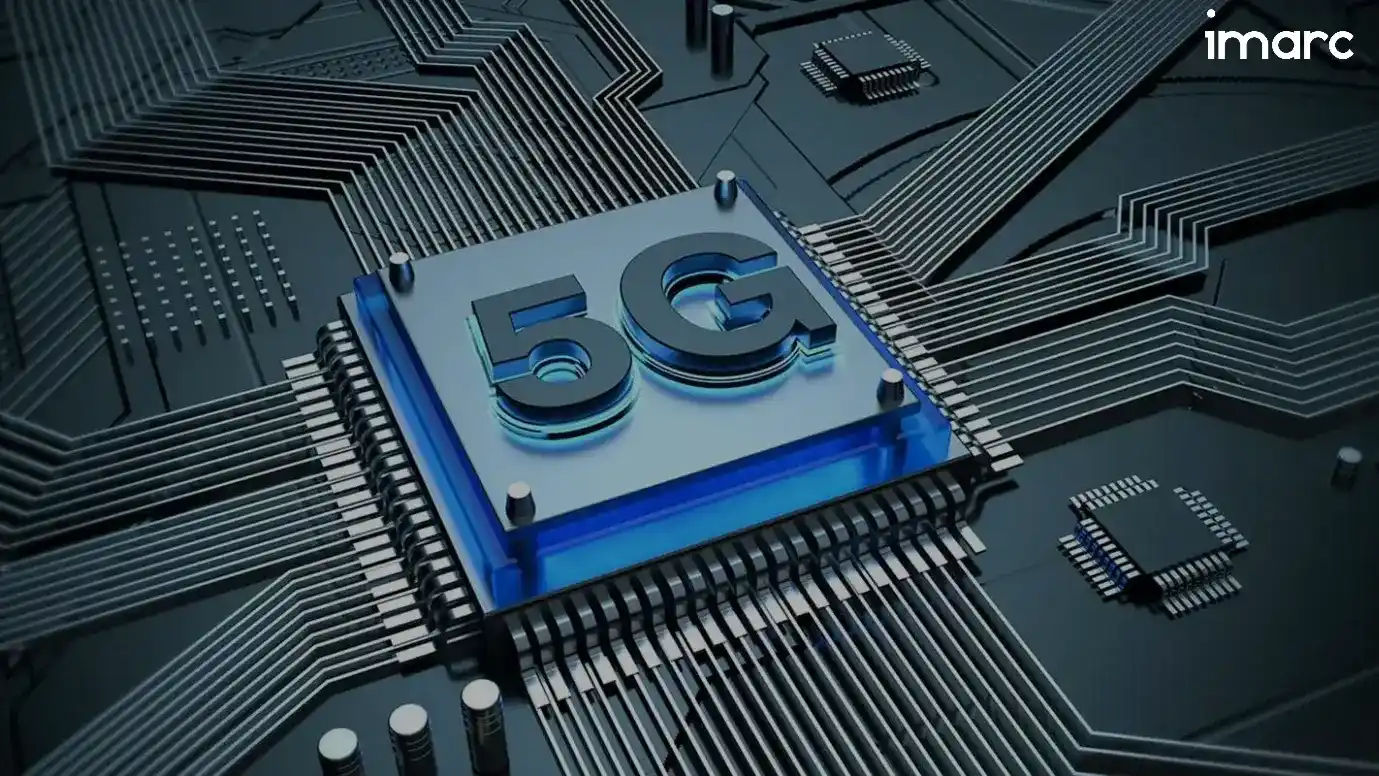Rising to the Top: India's Semiconductor Market Poised to Enter the Global Top Five by 2029

Semiconductors are crucial components in the modern electronics industry, used in electronic equipment and devices to manage and control the flow of electricity. They are found in consumer items like smartphones, wearables, smart TVs, and advanced equipment used in industrial applications, defense, and aerospace. Semiconductors are further divided into four broad categories: optoelectronics, discrete components, integrated circuits, and sensors. Memory devices, logic devices, analog ICs, MPUs, discrete power devices, MCUs, and sensors are some of the major components of semiconductors.
The materials used in manufacturing semiconductors include silicon carbide, gallium manganese arsenide, copper indium gallium selenide, molybdenum disulfide, and others. There are eight different kinds of companies involved in semiconductor manufacturing such as chip intellectual property (IP) cores, electronic design automation (EDA) tools, specialized materials and chemicals, wafer fab equipment (WFE), "fabless" chip companies, integrated device manufacturers (IDMs), chip foundries, and outsourced semiconductor assembly and test (OSAT) companies. As per reports, India accounts for 1% of the international semiconductor trade and 0.5% of global semiconductor sales. The nation relies entirely on semiconductor imports, with an annual expenditure of around US$ 24 Billion.
This dependency on imported semiconductors is a concerning factor, prompting the Indian Government to focus on semiconductor manufacturing within the country. In March 2024, Prime Minister Modi opened the chip fabrication unit of Tata-Powerchip Semiconductor Manufacturing Corp in Dholera, Gujarat. He also launched the CG Power-Renesas outsourced assembly and test (OSAT) facility in Sanand, Gujarat, and the Tata OSAT unit in Morigaon, Assam. Approximately US$ 15 Billion has been invested in this project. The proposed investment for the Tata-PSMC chip foundry is US$ 10.9 Billion, the Tata OSAT facility US$ 3.2 Billion, and the CG Power-Renesas, US$ 0.9 Billion. Union Electronics and IT Minister Ashwini Vaishnaw anticipates that by the end of 2029, India will be among the top five semiconductor manufacturers globally.
India's Semiconductor Boom: Key Drivers Fueling the Market's Growth
According to a study by IMARC, the Indian semiconductor market is expected to exhibit a CAGR of 9.5% during 2024-2032. The demand for semiconductors has increased over time, driven by favorable policies and initiatives by the Government. The factors contributing to the growth of the market are outlined below:
Growing Demand for Electronic Devices: According to a report published by Equiris Securities, the country's electronic manufacturing market is projected to reach US$ 71.7 Billion, growing at an annual rate of 41% until 2026. Additionally, Government support and initiatives are also fueling India's electronics market. Various electronic devices, including smartphones, laptops, wearables, and more, require semiconductors for connectivity and data processing. The rising demand for semiconductors in electronic devices is expected to propel the Indian semiconductor market in the future.

Favorable Government Initiatives: The Indian Government is introducing various policies and initiatives to promote the semiconductor industry, including incentives for manufacturing, research and development, and infrastructure development. For instance, three semiconductor manufacturing plants have been inaugurated in India in 2024. Moreover, the Union Cabinet approved the comprehensive Semicon India program in 2021, allocating US$ 9.11 Billion to create a sustainable semiconductor and display ecosystem in the country.

Adoption of Electric Vehicles: Semiconductors play a crucial role in electric vehicles for navigation, infotainment, power management, and safety systems. Additionally, the development of autonomous and connected vehicles in India is increasing the demand for semiconductors for sensors, communication, data processing, and AI capabilities. As the popularity of electric and autonomous vehicles continues to rise, the semiconductor market in India is poised for substantial growth.

Emergence of Innovative Technologies: The rise of innovative technologies like 5G, IoT, and AI has created major opportunities for semiconductor companies to provide chips and components that align with these evolving needs. Furthermore, the increasing demand for these technologies across industries such as healthcare, telecommunications, automotive, and industrial automation is anticipated to propel the semiconductor market in the coming years.

Key Initiatives of the Indian Government for the Semiconductor Industry
India Semiconductor Mission (ISM): Under this initiative, the Government of India is prioritizing the development of the semiconductor industry in the country. In 2021, the Government launched the Semicon India Mission, allocating US$ 9.11 Billion to establish a semiconductor and display manufacturing ecosystem nationwide. The primary objective of this program is to provide financial support to companies investing in semiconductors, display manufacturing, and design ecosystems.
The following four schemes have been incorporated into the India Semiconductor Mission:
- Setting up of Semiconductor Fabs: This scheme offers financial assistance to eligible applicants for the establishment of semiconductor fabrication plants. Its goal is to attract substantial investments to build semiconductor wafer fabrication facilities in the country. Under this scheme, financial support of up to 50% is approved for setting up manufacturing units for chips below 28 nm. Additionally, the Government provides financial aid of up to 40% for the production of chips in the 28 nm to 45 nm range and up to 30% for setting up facilities for wafers in the 45 nm to 65 nm range.
- Setting up of Display Fabs: This scheme offers financial support to eligible applicants for establishing display fabs, aiming to attract substantial investments in the country's TFT LCD and AMOLED display fabrication facilities. The scheme provides fiscal assistance of up to 50% of the project cost, with a maximum limit of INR 12,000 crores per fab.
- Compound Semiconductors/
- Design Linked Incentive (DLI) Scheme: This scheme provides financial incentives and design infrastructure support across multiple stages of development and deployment in semiconductor design, including integrated circuits (ICs), chipsets, system on chips (SoCs), systems, IP cores, and other semiconductor-linked designs. The program offers a "Product Design Linked Incentive" of up to 50% of eligible expenses, with a maximum of 15 crores per application, as well as a "Deployment Linked Incentive" of 6% to 4% of net sales turnover over five years, capped at 30 crores per application.
Unlocking Potential: Elevate Your Understanding with IMARC's Insightful Analysis
Companies need to set goals for the development of new and innovative semiconductor chips. It is necessary for them to analyze their existing product and identify areas where new technological advancements can be introduced in the manufacturing of semiconductors for a better user experience. The analysis of competitors’ business strategies and innovation of products is again a very important parameter for developing unique and featured semiconductors.
At IMARC Group, we specialize in assisting companies through market research to identify the latest trends, business strategies, and product opportunities. We assist organizations in the semiconductor market in finding their target audience, their preferences, purchasing behavior and creating powerful marketing plans. We can assist by providing information on new product launches, innovations, and recent trends and developments. We help businesses position themselves for long-term success and growth.